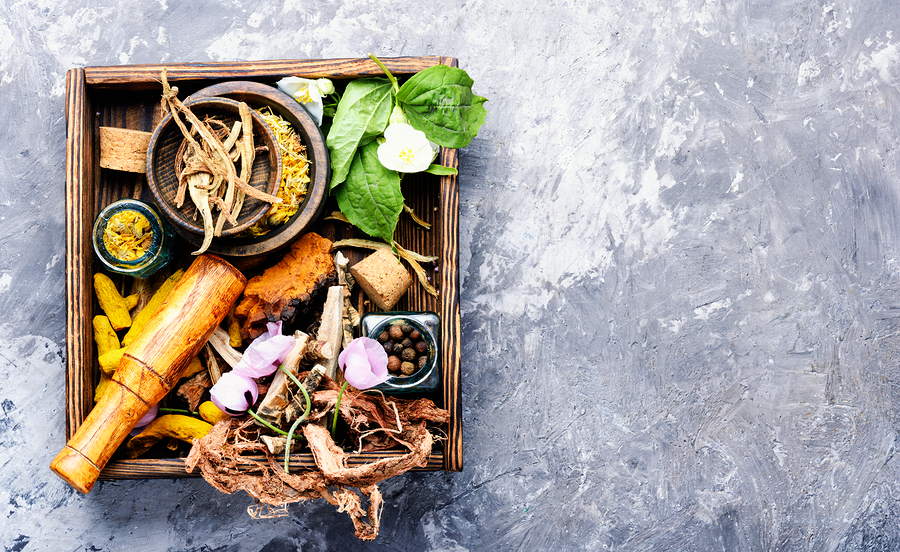TCM Practitioner: Juliana Chin Isogai
I chose to become an herbalist at the age of 5 and entered formal training at the age of 12 under my father’s tutelage. I idolized my father, and knew I wanted to be exactly like him, a great healer. He was one of the best healers and herbalist in the US and gave me the most thorough training possible, teaching me everything he knew and experienced. I grew up reading old texts, learning from knowledge passed down from generation to generation for thousands of years. As soon as I was old enough to walk, I was always at my father’s practice. Since I started learning at such a young age, I gained knowledge and experience well beyond what a regular herbalist would normally learn. I may look younger than I seem, but I have more than enough experience in Traditional Chinese Medicine (TCM) because I learned from one of the earliest Traditional Chinese Herbalists in Seattle.
The greatest strength of an herbalist is to know how to treat each patient individually. Their root disease is sought out and treated. In doing so, we learn to change bad habits into good ones in order to prevent that disease/illness from occurring again or occurring far less often than before. Prevention is the best method of healing. A disease is knowing one day you’ll have a natural disaster. It’s slowly preparing for it. Like a hurricane, the event may last for short duration, but it creates a lot of damage and is deadly. The scary part is the aftermath, it’s how long it will take to cleanup. The reality is that even after all that, it will never truly be the same ever again. This is scenario is much like our health, why wait for the disaster to occur when you can prevent it from even beginning?
What is Traditional Chinese Medicine?
The Traditional Chinese Medicinal (TCM) approach in healing encompasses a holistic approach that utilizes the body’s natural strength and its responses to internal and external factors to fight the illness or disease plaguing it. Symptoms and signs help point us to the actual cause of an illness and find its source. Through methods such as herbal remedies (teas), acupuncture on specific pressure points and meridians, cupping, gua sha, and various other ancient methods, we can make the body stronger to fight off the foreign disease/illness in an all-natural manner that doesn’t disrupt the natural flow of the body’s energy; therefore killing two birds with one stone in both prevention and healing. In time, we sustain the natural strength of the body and prevent illness from occurring. In order to have good health, we must learn to maintain it for the rest of our life.
This ancient art of healing is one that incorporates multiple methods, and over time has evolved to become the best-known Eastern Medicine in the world. It is considered Folk medicine because it is generations after generations of knowledge and experience passed down from master to apprentice, one after another. We devote our whole lives to learning it, experiencing it, and then teaching to those who both have the desire and the capabilities to learn it. I’m sure you’ve heard of acupuncture, cupping (Hello Michael Phelps), probably even seen some of the interesting herbs that others have taken. And yes, they look interesting.
There are many different types of ways and healing methods that are within the scope of healing for Traditional Chinese Medicine (TCM), but they all have the same theories and ideas as the foundation. Everything else is just added to it. But the underlying theory will always remain a fact. Which is that TCM is an art of healing in which a trained eye can see the issues of the body through the method of Looking, Listening, and Feeling from the healer to the patient. Together, through the patient’s cooperation and willingness to be completely open, we find the source of the problem.
Eastern Medicine, one such as TCM is considered an alternative way of health care, especially in the US. But if you look at the culture and the history behind it, it’s in fact a way of life. Many see it simply as drinking herbal tea or getting acupuncture, or releasing the pressure from the body, but it’s not about that. It’s about maintaining good health and preventing the bad from coming in. There are many remedies for all kinds of different health issues, ranging from something small like the occasional cough or maybe the cold that will come around every change of the season, to the scary illnesses like heart disease or cancer.
TCM has been present in our world for over 4,000 years. In time, it’s evolved to become what it is now; a powerful form of health care that not only heals you but teaches you how to live a better life. Its purposes aren’t just a method of healing, but a way to teach others. I’ve had many people come to me thinking that I won’t heal them because they don’t share the same beliefs, or they disagree with some of the methods and don’t wish to continue them. And you know what? That’s fine too. It comes down to how much good you want to receive from the effort you put in. If you put in every effort in order to help yourself feel better, you can almost guarantee that the effects will be even better. In a healthy body, all our organs and systems are in harmony with one another. It is when there is disharmony and imbalance that create all these health conditions and pains that we have. So, we must first learn what we did in order to cause all these health problems in the first place before we can even think about how to fix them.
To learn more about Traditional Chinese Medicine, Contact Juliana Chin Isogai.
